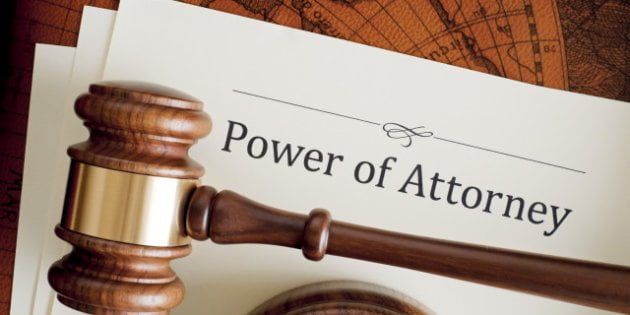Power of Attorney – What Is The Deal?

We strive to constantly improve our service to our clients, so Cheryl and I have just completed our courses for our designation as Senior Real Estate Specialists (SRES). This does not mean we are seniors! What it means is, we have had extra training in areas that pertain to seniors and their real estate needs. One item we had much discussion on was Power of Attorney. What is it? What kinds of Power of Attorney are there? Let’s discuss.
There are two basic types of Power of Attorney – one for Property and one for Personal Care. Many people think that if they have done a Power of Attorney for Property that this is enough. It isn’t. You really should have both.
Power of Attorney – Personal Care
The Power of Attorney for Personal Care is a document that gives authority to a person, you choose, to act on your behalf in the event you become mentally incapacitated and are unable to do so for yourself. If you do not have a document in place, under the Health Care Consent Act of 1996, states that no care can be given to you (unless an emergency situation), until someone with authority is found to make decisions for you.
It is very important to find someone you trust, that you can discuss your wishes with and really will carry out your wishes despite what others may think. Think for instance, if you were in an accident and you have already stated to everyone you know and love, that should you ever be injured that you are legally brain dead, you want to “pull the plug” so to speak. Your assigned attorney has the power to execute your wishes, but your loved ones may not be emotionally able to make that decision. It just makes things crystal clear before people are under stress. This is a document that should be reviewed every 3-5 years just like a will. Maybe as time goes by, you may wish to make changes to who your power of attorney for care is or you have different wishes of what you would like done for you. Make sure to have the documents prepared by a lawyer and discuss with your assigned attorney your wishes.
Power of Attorney – Property
The Power of Attorney for Property is a legal document that you sign to give authority to someone to act on your behalf in terms of money and property. This does not have to be only when you are mentally incapable. In real estate, we do come across this on many occasions. There are basically two types of documents, a General Power of Attorney or an Enduring or Continuing Power of Attorney.
The General one is for a specific period of time or is limited to a specific task. An example would be to have your child have signing authority while you are vacationing in Florida for the winter. The document is very specific on what the attorney can do on your behalf and for what period of time. As a Realtor® we need to get a copy of this document to allow the transaction to occur.
The Enduring or Continuing Power of Attorney is more frequently the document used for when you do become mentally incapacitated. It is imperative that you understand what you are signing when you have your lawyer draw up a document.
There are both risks and benefits to having a Power of Attorney in place, so you really need to make sure you choose someone you trust and believe wholeheartedly they will act in your best interest and will carry out your wishes. Many people avoid this process because it is only important if you are unable to make decisions yourself and that is a scary thought. It’s easier to think it will never happen to me than to have to think about unpleasant situations. Be proactive! Get it in place and then you will be secure in knowing you have done your very best to ensure your wishes are carried out.
There is so much more to Power of Attorneys so it is best to discuss with a legal professional, but should you have any questions of where to begin, we would be happy to help!

